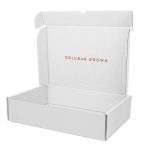In the digital age where tablets and laptops dominate our workspaces, there’s something remarkably grounding about the simple pencil box. This humble container, often overlooked, holds more than just writing instruments—it carries memories, sparks creativity, and serves as a personal sanctuary for organization. Whether you’re a student navigating the challenges of academia, an artist chasing inspiration, or a professional seeking order in chaos, the pencil box remains an indispensable companion in your daily journey.
Remember the excitement of unzipping a new pencil case on the first day of school? The crisp smell of unused erasers, the perfectly sharpened pencils standing at attention, the colorful markers waiting to bring ideas to life—this ritual marks beginnings and possibilities. The pencil box isn’t merely a storage solution; it’s a curated collection of tools that represent our preparedness to create, learn, and solve problems. In a world moving at lightning speed, this tangible organization system provides a sense of control and personalization that digital alternatives can’t replicate.
The psychology behind a well-organized pencil box reveals why this simple accessory matters more than we realize. Studies in environmental psychology suggest that orderly physical spaces contribute to mental clarity and reduced anxiety. When your writing tools have a designated home, you eliminate the daily frustration of searching for misplaced items and create mental space for more important tasks. The act of arranging your pencils, pens, and highlighters becomes a mindful practice—a small moment of meditation in an otherwise hectic day.
Modern pencil boxes have evolved far beyond the basic plastic containers of yesterday. Today’s designs incorporate innovative materials like durable eco-friendly bamboo, lightweight aluminum, and water-resistant fabrics. Compartmentalized interiors with elastic loops, removable trays, and specialized slots ensure every item stays securely in place. Some feature built-in sharpeners, magnetic closures, or even USB ports for charging digital devices. These advancements transform the humble pencil case into a sophisticated organizational system that adapts to our contemporary needs while maintaining its fundamental purpose.
For students, the pencil box becomes a mobile command center. From elementary school crayons to university-level technical pens, this portable organizer grows with the learner. The discipline of maintaining a pencil box teaches responsibility and foresight—valuable life skills that extend beyond the classroom. For creative professionals, the pencil case serves as an inspiration kit, holding the tools that transform abstract ideas into tangible designs. The specific selection of pencils, the preferred brand of pens, the exact shade of highlighters—these choices reflect our personality and working style.
The environmental impact of pencil boxes deserves consideration too. Unlike disposable plastic containers that contribute to landfill waste, quality pencil cases made from sustainable materials can last for years, even decades. Many manufacturers now prioritize eco-conscious production methods, using recycled materials and minimizing packaging. By investing in a durable pencil box and refilling it with quality writing instruments, we make a small but meaningful contribution to reducing waste—one pencil at a time.
In our increasingly digital workspaces, the physical act of writing maintains cognitive benefits that typing cannot replace. Research indicates that handwriting engages different neural pathways, enhancing memory retention and creative thinking. The pencil box, therefore, becomes more than an organizational tool—it’s a gateway to these cognitive advantages. Having your writing instruments neatly organized and readily available encourages you to step away from screens and engage in the tactile experience of putting pen to paper.
The cultural significance of pencil boxes spans generations and geographies. In Japan, the stationery culture elevates pencil cases to art forms, with sophisticated designs and premium materials. European manufacturers have long produced heirloom-quality cases passed down through families. Across different cultures, the common thread remains: the pencil box represents preparedness, learning, and self-expression. This universal appeal explains why, despite technological advancements, the pencil box endures as an essential item in bags and desks worldwide.
Choosing the right pencil box involves considering your lifestyle, needs, and personal aesthetic. The minimalist might prefer a sleek aluminum case with precisely fitted compartments, while the artist might opt for a soft, expandable case that accommodates various tools. Students might prioritize durability and capacity, while professionals might value sophistication and discreet design. Whatever your preference, the perfect pencil box should feel like an extension of yourself—a reliable partner in your daily pursuits.
As we navigate between digital and physical realms, the pencil box stands as a bridge connecting tradition with innovation. It reminds us that organization can be beautiful, that preparation enables creativity, and that even the simplest tools, when cared for properly, can make a significant difference in our productivity and mindset. So the next time you open your pencil box, appreciate it not just as a container, but as a carefully crafted ecosystem that supports your ideas, your work, and your growth—one perfectly sharpened pencil at a time.




Leave a Message